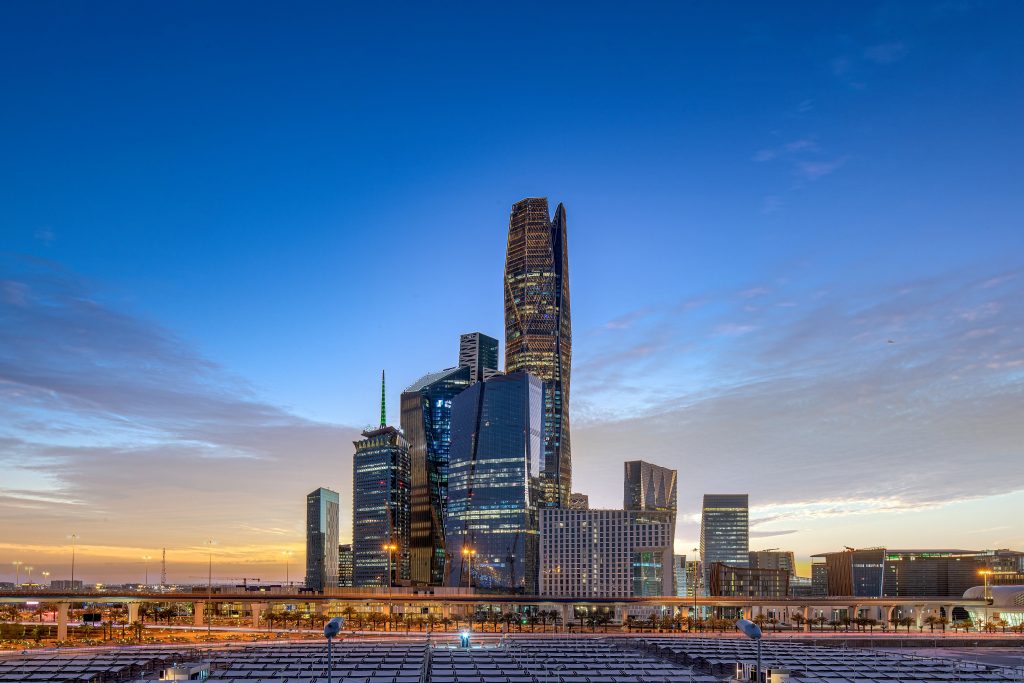The Kingdom of Saudi Arabia’s Minister of Investment, Khalid Al Falih, shared promising updates at a gathering in London, revealing significant headway in the country’s ambitious Vision 2030 development strategy. Not only is the plan well underway, but it is also progressing faster than anticipated.
During his address at the UK-Saudi Sustainable Infrastructure Forum, Al Falih expressed satisfaction with the current state of the Vision 2030 implementation, noting that all aspects are advancing ahead of the projected timeline.
Vision 2030 represents a pivotal shift for Saudi Arabia, aiming to diversify its economy away from oil and gas dependency towards a future rich in technology and renewable energy through multi-trillion-dollar mega-projects.
Despite recent indications from Saudi officials, including Finance Minister Mohammed Al Jadaan, suggesting some project downscaling, the overall sentiment conveyed at the summit remained highly positive, highlighting the forum’s role in strengthening Saudi-British trade ties.
Al Falih spotlighted the significant economic benefits Vision 2030 has brought to Saudi Arabia, with the nation’s economy growing by approximately 70% since the plan’s inception, moving it from 20th to 16th in the G20 rankings. Moreover, Saudi Arabia has experienced the second-fastest GDP growth rate among G20 countries, nearly 7% annually post-Vision 2030 launch.
Emphasizing the kingdom’s openness for business, the minister underlined substantial increases in foreign direct investment and the issuance of foreign licenses since Vision 2030’s implementation.
Al Falih used the tourism industry as an example of the country’s progress, stating that the initial goal of attracting 100 million visitors by 2030 was already realized last year, prompting an updated target of 150 million. He described the ongoing construction of previously conceptual projects.
Neom, a $500 billion endeavor in north-west Saudi Arabia, is poised to become a futuristic hub featuring 10 cities with state-of-the-art urban technology, sustainable economic practices, and a strong conservation ethos where ‘nature comes first.’
The Line, a remarkable 274km ‘cognitive’ city within Neom, is designed to function without cars and emissions, relying entirely on renewable energy. Despite some recent scaling down of plans, the initiative continues to generate excitement.
Nadhmi Al Nasr, CEO of Neom, emphasized the project’s scale and commitment to innovation and conservation, with 95% of the region designated for natural preservation.
Dr. Manar Al Moneef, Neom’s chief investment officer, stressed the essential role of the private sector in bringing the Vision 2030 infrastructure projects to fruition, with over 150 initiatives across different sectors ready for discussion and partnership.
The summit also highlighted the pivotal role London plays as a global financial center, especially post-Brexit, in facilitating capital flow to emerging markets like Saudi Arabia. Al Falih pointed to existing collaborations between the London Stock Exchange and Saudi market participants.
Jane Goodland, from the London Stock Exchange Group, echoed the sentiment, noting the potential for green and sustainable bonds to meet Saudi’s Vision 2030 capital requirements and support the global transition to a low-carbon economy.
The success of Saudi Arabia’s inaugural green bonds, launched on the London Stock Exchange and oversubscribed by eight times, illustrates the growing interest in sustainable investment.
For those considering investment in Neom, Dr. Al Moneef portrayed it as an unparalleled opportunity to contribute to a sustainable and innovative future, with a range of investment scales accommodated.
Concluding the summit, Prince Khalid bin Bandar Al Saud, the Saudi ambassador to the UK, encapsulated the message to British business leaders and entrepreneurs: Saudi Arabia is ripe with opportunities for those ready to explore the potential the kingdom has to offer.
